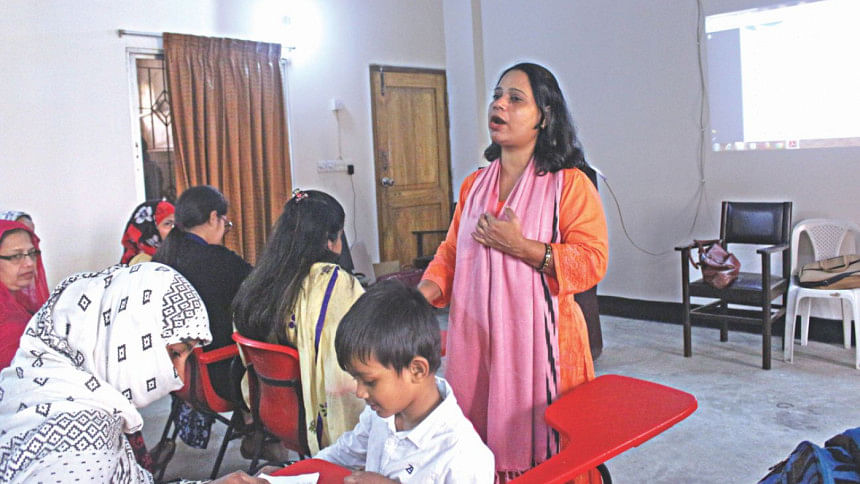Talking menstruation and puberty

Eager parents quickly filled up the room and participated in an ice-breaking session to start things off. The speaker made the session conversational instead of it just being a talk. Everyone completed a short quiz after the introduction. The quiz consisted of many misconceptions relating to menstruation, such as menstrual blood being impure and women not being able to do certain work during their periods, which the speaker swiftly clarified with proper reasoning.
Nasrin Begum elaborated on menstruation, the menstrual cycle, and menopause in full detail. There were some confusion regarding at what age these events take place, which was explained. She also emphasised on the stigma surrounding these phenomena: how people do not openly talk about these bodily processes with others, including their own children. Men were not left out of the conversation as she stated that they too need to take responsibility for taking care of the needs of their children during puberty. She especially highlighted the fact that these events are natural biological processes and should not be treated as illnesses. What is normal and not in relation to factors such as age and the menstrual cycle was also distinguished.
The parents were informed that children need to know about their bodies so that they do not get shocked or afraid when the time comes. The changes boys experience during puberty were also discussed with similar advice being given. The speaker further instructed everyone on how to handle these situations and what to tell their children when the signs of puberty start showing.
The use of sanitary napkins was heavily discussed as the session carried on. The speaker pointed out how the napkins are seen as something to be kept hidden, and teenagers not knowing how to use them as a consequence. Parents posed questions about the affordability of napkins and possible substitutes and the speaker thoroughly answered. Proper disposal of napkins was a big issue that was brought up. The speaker recommended schools to stock and distribute napkins and provide baskets with lids for disposal, since many sanitary napkins are not disposable.
The final part of the session revolved around why and how menstruation takes place in a biological context. Parents were educated on the female reproductive organs and the changes girls go through during the menstrual cycle, further reinforcing the fact that it is a completely normal part of life.
With the success of the programme's first session, InclusionX plans on conducting these sessions in other schools as well. The organisation primarily focuses on empowering individuals with intellectual disabilities through its initiatives. The eleventh instalment of one of its main programmes, Joy of Computing, is currently underway.

 For all latest news, follow The Daily Star's Google News channel.
For all latest news, follow The Daily Star's Google News channel. 



Comments